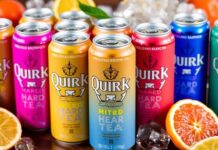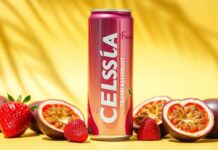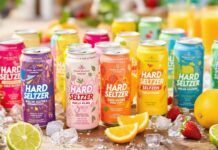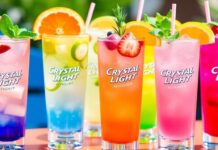After the Boston Beer Company’s (NYSE: SAM) abysmal Q2 earnings report last month, mainstream media was quick to blame the hard seltzer category as a whole — more than the company’s misguidance of its hard seltzer brand, Truly. Headlines popped up claiming the hard seltzer trend was over and chaos ensued.
Since SAM’s quarterly earnings were announced, analysts have publicly taken issue with the media’s stance on seltzer. Analysts have opined that media outlets misinterpreted the now highly competitive market and hard seltzer is “here to stay.”
On a recent episode of Motley Fool’s podcast, Industry Focus, investment analyst Emily Flippen sat down with senior analyst Asit Sharma to discuss the recent stock market performances of some of the most popular hard seltzer brands and what those performances mean for the future of the bubbly beverage.
Hard Seltzer is “Here to Stay”
Flippen and Sharma, who are both analysts for Motley Fool, suggest Boston Beer’s performance signals the maturing of the hard seltzer market, rather than its decline.
“This is a trend that, despite headlines after Boston Beer’s reports, I think it’s here to stay. I don’t see it going away,” Flippen asserted. “It might lose some momentum as all trends do, but it’s certainly not going to be, in my opinion, completely upset again by, say, the beer market or the wine market.”
However, according to Flippen, Boston Beer is not without blame in this scenario. “Boston Beer made the mistake of providing really strong guidance and having to pull it back as a result of something that I think they probably should have seen coming,” Flippen explained.
The hard seltzer market surged in an unprecedented way just before the pandemic and continued to surge throughout the early stages of quarantine. This year, beverage alcohol companies were forced to create quarterly sales and revenue goals based on the previous year’s impressive, and extremely unlikely to reoccur, set of circumstances.
Meanwhile, the hard seltzer market continued to evolve and grow into itself. Quarantine regulations were lifted, on-premise venues began reopening and new seltzer brands hit shelves, saturating the market even further.
“Hindsight is always 20/20, of course, and that is the reemergence of people into the summer going out, going to bars, going to restaurants, consuming less alcohol at home, as well as just the maturation, the hard seltzer category maturing with time, which would of course cause a more competition but less excitement as well. I think there is some guidance that played into this big fall we’re seeing here,” Flippen continued.
Both Flippen and Sharma agree that Truly, and the hard seltzer market in general, will continue to flourish, even if they do not experience the astronomical sales they did during the pandemic.
Sharma stated, “Truly Hard Seltzer, even though it caused a lot of problems this quarter, that’s the biggest brand in their portfolio of hard seltzers, it’s still growing at 2.7 times the hard seltzer category. So it’s slowly gaining market share.”
“Boston Beer, just thinking about hard seltzer in general, is really well-positioned. They’re one of the top three brands right now in terms of market share, and they have really strong distribution.” – Emily flippen
The analysts’ assessments are in line with what we have already seen in the seltzer market since SAM’s earnings report. A week after Boston Beer’s stock plummeted, three beverage alcohol titans, Molson Coors (NYSE: TAP) Anheuser-Busch (NYSE: BUD) and Diageo (NYSE: DEO), all reported very strong performances in their own earnings reports–TAP and BUD for their Q2s and DEO for its F21.
All three companies went into this year with significantly less share of the seltzer market than SAM’s Truly, much newer brands, and more opportunities to encroach on Truly and White Claw’s leads.
Truly and Mark Anthony’s White Claw have consistently controlled the majority of the hard seltzer share since they hit shelves in 2016. Now, as a result of the maturing of the market, newer brands like Molson Coors’ Vizzy, Anheuser-Busch’s Michelob Ultra Organic Seltzer and Constellation’s Corona Hard Seltzer, all have the opportunity to capture more of the pie.
Sharma stated, “You’ve got a market share fight that’s being built here and I think it’s going to be fun to watch these heavyweight slug it out, for Boston Beer to maintain its No. 2 position, and for Constellation Brands to try to bring Corona from a No. 4 to a No. 3 or potentially take that No. 2 spot.”
Yahoo Finance Agrees on Hard Seltzer
Flippen and Sharma are not the first analysts to provide a positive outlook for the future of hard seltzer. Andrew Serwer, the Editor in Chief of Yahoo Finance, recently penned a newsletter entitled, “Why hard seltzer is still America’s ‘it’ drink,” in which he argued that the hard seltzer market is simply adjusting.
In the newsletter Serwer pointed to the proliferation of brands on the market as a reason for the much needed adjustments, as well as the great potential hard seltzer has to gain traction overseas.
The hard seltzer market might look different than it has in the past, but analysts agree, the beverage category is still growing and will be sticking around for the long haul.
- Seltzer Category Expanded for 2022 Craft Beer Marketing Awards - February 11, 2022
- Drifter Expands Portfolio with Nordic-Style Gin - January 18, 2022
- Tilray Acquires Green Flash and Alpine Beer - December 22, 2021














